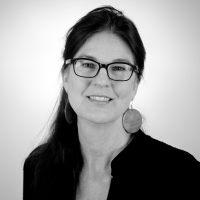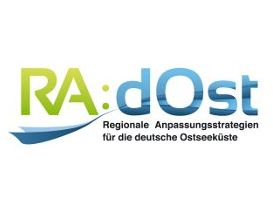Dr. Grit Martinez
|© Ecologic Institute
RADOST in Exchange with Coastal Planners in the USA
- Presentation
- Date
-
- Location
- Charleston, SC, United States
- Chairing
The RADOST (Regional Adaptation Strategies for the German Baltic Sea Coast) project, coordinated by Ecologic Institute, concerns itself beyond its regional emphasis also with the exchange of positive experiences in the implementation of climate change adaptation measures in geographically similar regions not only in Europe but all over the world. In this context, the "Social Coast Forum" of the USA's National Oceanic and Atmospheric Administration (NOAA) was the first in a series of activities with which Ecologic Institute will intensify the exchange with regions on the east coast of the United States and in the Chesapeake Bay.
On the occasion of the Social Coast Forum, more than 200 coastal planners, social scientists, and representatives of industry met from 14 to 16 February 2012 in Charleston, South Carolina. Hosted by the Coastal Services Center of the NOAA, the event was just organized for the first time but will take place every two years in the future.
This platform provided RADOST with an opportunity to exchange views with the forum's participants about culturally dominant attitudes and perceptions in the coastal regions of the USA and the Baltic Sea region. As part of the workshop "Ask the Audience: Climate Change and Cross-Cultural Coastal Zone Management: Knowledge for Action in the U.S. and Europe," internet-based software was used to collect and discuss questions about coastal attitudes and their influence on the implementation of adaptation measures. The participants agreed that cultural imprints determine actors' strategies and influence their behavior in concrete situations. Therefore, it is essential to take these factors into account in order to successfully plan and implement adaptation measures.
The Vice Mayor of Broward County (Florida), Kristin Jacobs, was also represented at the Social Coast Forum and discussed the relevance of concrete adaptation measures in flood-threatened Florida in her opening remarks. Although the State of Florida is generally recognized as a hotbed of "climate skeptic" activity, Broward County has managed, during Kristin Jacobs' many years as County Commissioner, to make itself be heard at the state and national level. Recently, a regional Climate Change Action Plan was completed in Broward County, which is part of the greater Miami area and, with 1.7 million residents, ranks 18th according to inhabitants among more than 3,000 counties and county-equivalents in the US.
RADOST hopes to extend the exchange with communities, regional coastal planners, and representatives of civil society in the USA continually. In addition to planned workshops in cooperation with regional planning associations in Maryland and North Carolina, a meeting is scheduled for early March in Washington, DC with representatives from the recently created "Adaptation Group" of the NOAA. The program also includes in-depth discussions with local decision makers, including with Vice Mayor Kristin Jacobs, and surveys of representatives from politics, administrations, and civil society. Questions centrals to this dialogue are: Which difficulties do players in the US have to overcome? What adaptation approaches are already in use? How can regions in the US and the Baltic Sea area learn from one another? These international activities of the RADOST project are being carried out in cooperation with the Nicholas School of the Environment and Earth Sciences at Duke University in North Carolina. As part of the connection, RADOST Project Leader Grit Martinez (Ecologic Institute) was named Adjunct Associate Professor at the Marine Laboratory of Duke University in Beaufort and began her guest appointment there in February 2012.




